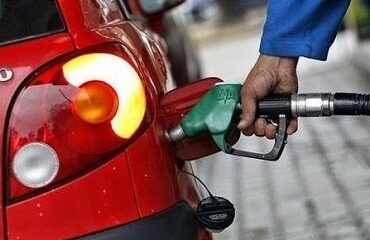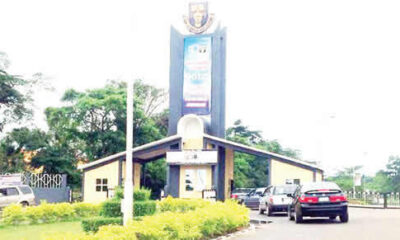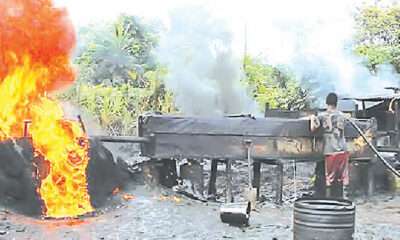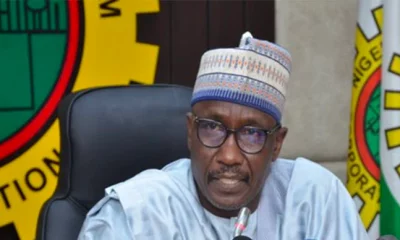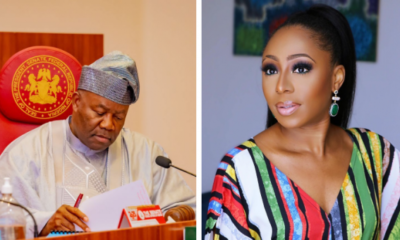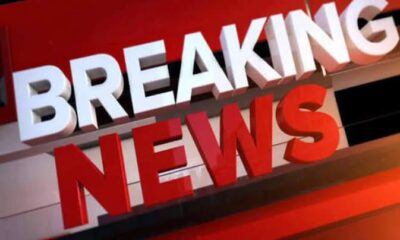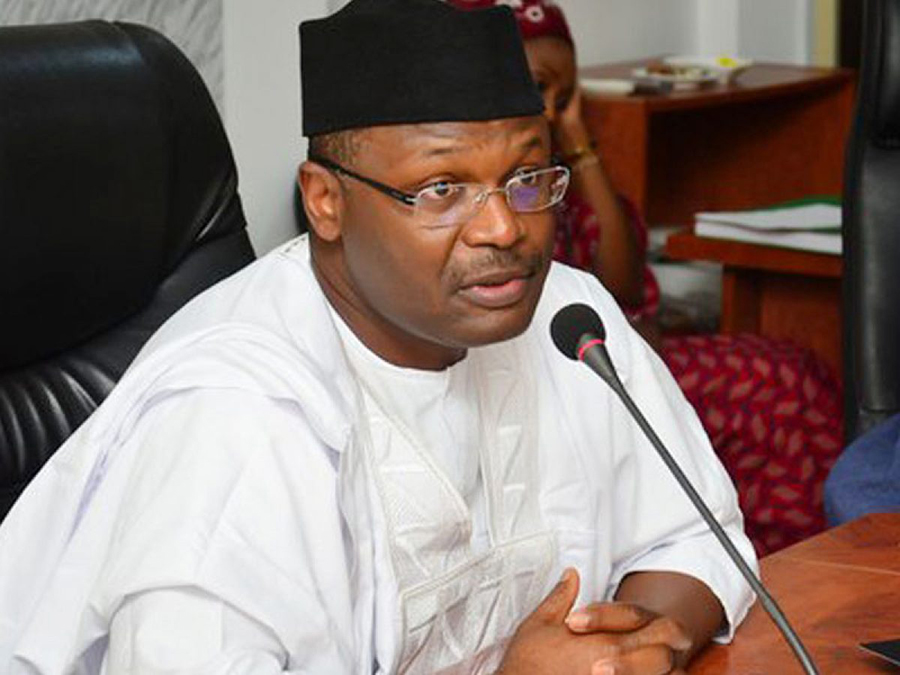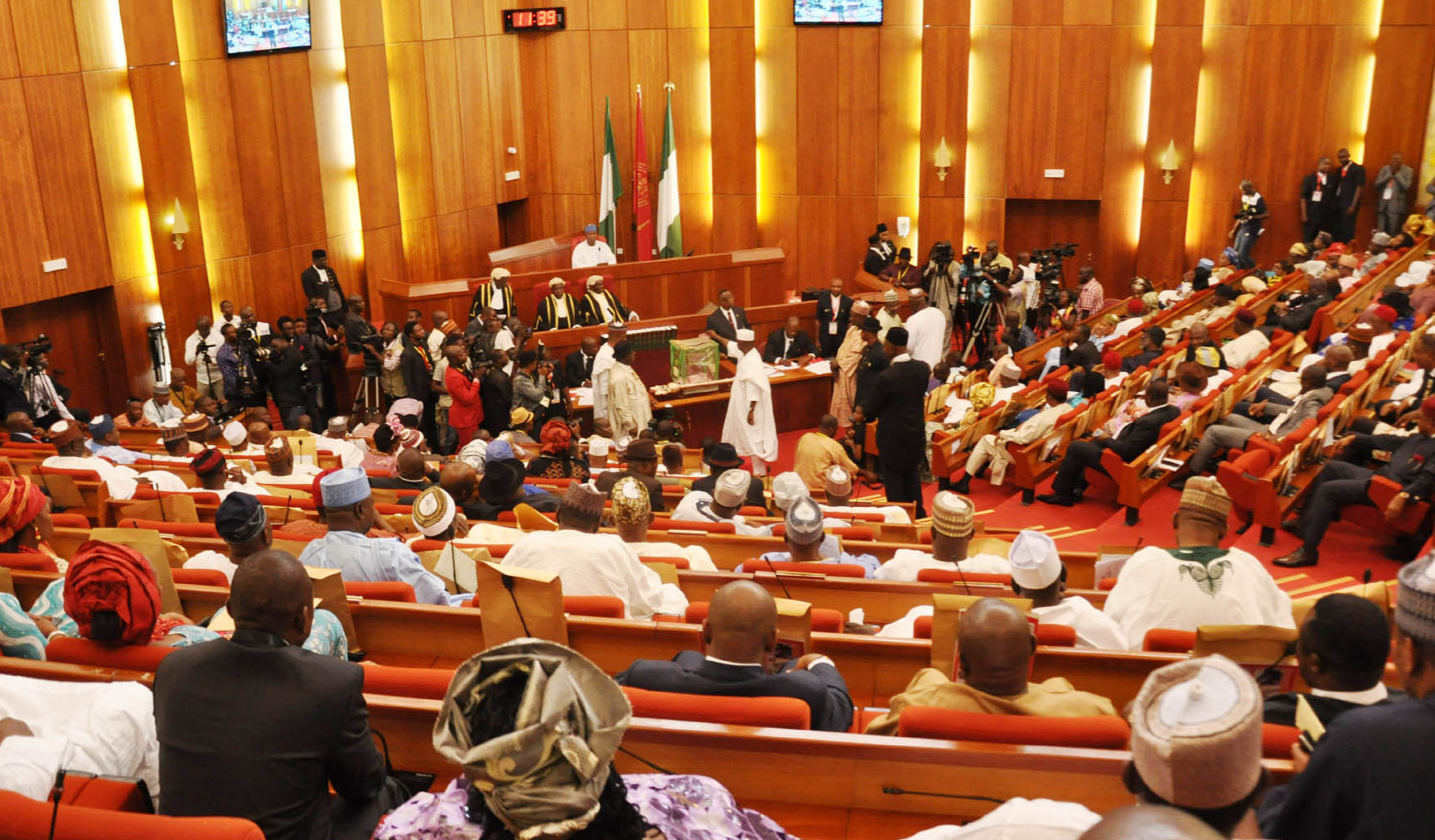Business
Marketers Eye Fresh Fuel Price Hike As Crude Hits $94
Published
10 months agoon
By
Editor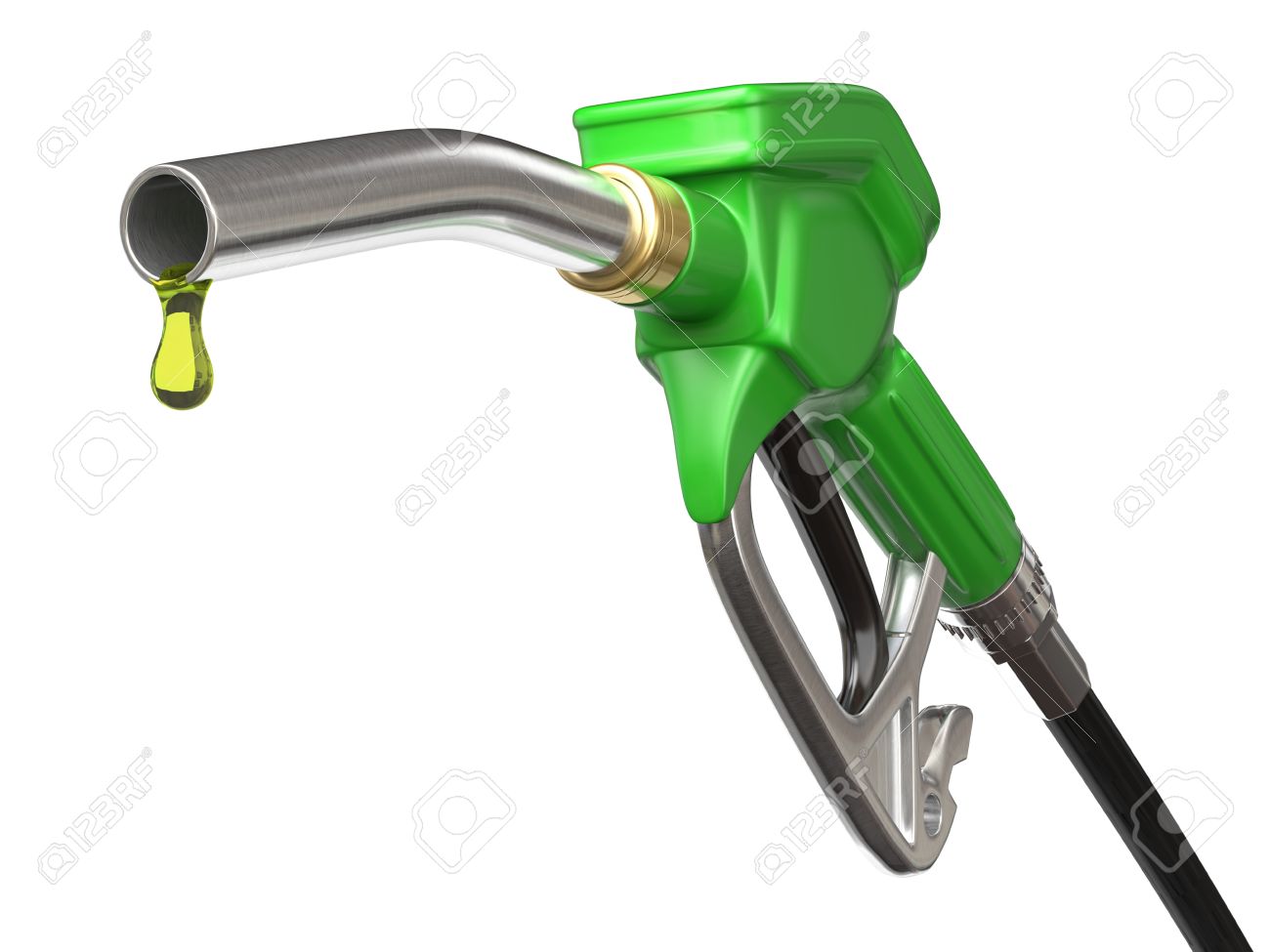
The rise in the cost of crude oil, coupled with the depreciation of the naira against the United States dollar, might lead to a hike in the pump price of Premium Motor Spirit, popularly called petrol, oil marketers stated on Sunday.
It was also gathered that the sharp rise in crude oil price to about $94/barrel and the crisis around forex, had warranted a gradual increase in the amount being quietly spent as subsidy on petrol by the Federal Government.
Dealers in the downstream oil sector explained that the cost of crude oil and the exchange rate of the dollar accounted for over 80 per cent of the cost of PMS.
Brent crude, the global benchmark for oil, rose to $94/barrel on Sunday, the highest figure in 2023. Oil had started the year at about $82/barrel, dipped to $70/barrel in June, but traded above $92/barrel in the past week.
Also, The PUNCH reported on Thursday that the naira weakened to N950/dollar as forex scarcity worsened.
The report stated that the naira fell further against the dollar the preceding day (Wednesday), after closing at 950/$ at the parallel market.
Bureau de Change operators had told The PUNCH that the naira, which earlier closed at 930/$ at the close of operations on Tuesday, was bought and sold at 935/$ and 950/$ on Wednesday.
Although the Federal Government and its Nigerian National Petroleum Company Limited had insisted that subsidy on petrol had ended, following the deregulation of the downstream oil sector, operators insisted on Sunday that the government was implementing quasi-subsidy.
READ ALSO: Oil Price Rises To $92.79 On Output Cut, May Hit $107
They explained that with the latest rise in crude oil price, the cost of petrol was meant to increase, stressing that if the government insists on leaving the commodity at N617/litre, then subsidy on PMS had been returned quietly.
The marketers explained that in July when the cost of petrol was raised to N617/litre, crude oil traded around $82/barrel, while the the exchange rate was not as high as N950/$ at the parallel market.
The Nigerian Association of Road Transport Owners corroborated the concerns of marketers, as it stated that the price cap on petrol had made it tough for marketers to comply with the demands of NARTO with respect to increasing the cost of transportation for petrol.
“The Group Chief Executive Officer of NNPC, in one of his statements, had pointed out that as long as the dollar continues to rise, Nigerians should not expect petroleum products prices to be pegged. The cost of crude oil is also on the rise and it impacts on petrol price, because PMS is derived from crude.
“So in this price deregulation regime, once the dollar increases, automatically it means that the cost of importing petroleum products will also increase. And the cost of every other related service will rise,” the National Public Relations Officer, Independent Petroleum Marketers Association of Nigeria, Chief Chinedu Ukadike, stated.
He added, “So the fuel we are buying today at N617 or N596 depending on where you buy it and based on the nearness to depots, is actually below what the price should really be, going by the rise in dollar and crude oil price.”
Ukadike stated that though the rise in crude oil price would increase Nigeria’s foreign exchange earnings, the forex was being used to import refined products.
“I said earlier that what we are experiencing now is quasi-deregulation. The rise in crude oil price has both positive and negative effects on Nigeria. It is positive because it increases our generation of dollars when we sell the crude.
READ ALSO: Oil Price Rises After Shocking OPEC+ Production Cut
“But it is negative in the sense that we still use that dollar that we have got to import the finished products of crude. That is the problem. For if Nigeria is refining products, then there will be a windfall, but since we import with the dollar that we make, then it makes no sense.”
On whether the rise in oil prices would warrant further hike in the cost of PMS and other finished products, thereby increasing subsidy on petrol particularly, Ukadike replied, “Yes, of course.
“The gap is becoming too much. Also, the exchange rate gap between the official and parallel markets is widening. And these gaps have to be filled by the government through quasi-subsidy on petrol.
“You also know that most of the investors who tried to import products when it was announced that the subsidy on petrol had been removed, are now finding it very difficult to do so.
“This is because after buying the dollar in the parallel market, they cannot recoup what they have invested. So the government must be transparent with this subsidy removal thing. It should apply it to the fullest, so that competition can set it.”
On his part, the President, Petroleum Products Retail Outlets Owners Association of Nigeria, Billy Gillis-Harry, said though the cost of crude had been rising lately, the NNPCL should be able to manage it for the benefit of Nigerians, with respect to petroleum products prices.
“Crude oil is selling at a higher price and that price should impact positively, because the major importer of petroleum products is the NNPC and they do that on a swap basis, unless they are telling us that the swap is not efficient.
“For if it is efficient, they should have more money for the size of crude oil they sell, which should impact on the price they pass on to Nigerians. Yes, today it is a commercial company, but it is still owned by Nigerians and is a sovereign company.
“And the fact that Nigerians must benefit from their natural endowment by God should be reflected in the pricing of products by NNPC. That is all I’ll say about this issue,” he stated.
READ ALSO: Global Oil Price Drops To $0.01/Barrel
Earlier, the National Secretary, IPMAN, Chief John Kekeocha, had asked the Federal Government to come out clean with respect to fuel subsidy, instead of mandating oil marketers not to dispense the product above a stipulated band.
In August, the Special Adviser to the President on Media and Publicity, Ajuri Ngelale, had told State House correspondents that President Bola Tinubu had instructed that the cost of petrol should not increase.
“Mr. President, wishes to assure Nigerians following the announcement by the NNPC limited just yesterday (Monday) that there will be no increase in the pump price of PMS anywhere in the country. We repeat, the President affirms that there will be no increase in the pump price of PMS.”
NNPCL had also in August stated that it was not raising petrol price.
“Dear esteemed customers, we at NNPC Retail value your patronage, and we do not have the intention to increase our PMS pump prices as widely speculated. Please buy the best quality products at the most affordable prices at our NNPC Retail stations nationwide,” the company had stated.
NNPC Retail is the downstream subsidiary of NNPCL that retails refined petroleum products for the group.
Kekeocha had said that the decision of the Federal Government to put a cap on petrol price meant that subsidy on petrol had been reinstated.
He said, “The government is not being very transparent with this issue. When you say you have removed fuel subsidy, you don’t come again and moderate prices. Is like speaking with the two sides of the mouth.
READ ALSO: Why Fuel Price Was Increased To N617 Per Litre – IPMAN
“Removal of subsidy means you have removed your hands and the prices have to follow demand and supply. So if the NNPC says it is getting forex (foreign exchange) to import products and reduce prices for marketers, are they going to do the same for other importers? Remember the government gave import licenses to about seven marketers?
“Are they still going to moderate prices for those people when they bring in the products? No! You don’t blow hot and cold at the same time. There is no way they can bring in products and reduce the price and peg it for marketers to sell at a certain level, it means they are indirectly bringing back subsidy.
“If they want to bring back subsidy, let them say it openly, that ‘we are going to come back to subsidy because of the pains the country generally is going through.’ This is because the initial things they are supposed to do they did not do it. We have always been clamouring, let the refineries work.”
NARTO raises concern
The National President, Nigerian Association of Road Transport Owners, Yusuf Othman, said despite the high cost of operations in the downstream arm of the oil sector, the government had stopped increasing the pump price of PMS.
He noted that since marketers could not raise their pump prices for petrol, it had been impossible for them to increase their costs for the transportation of PMS, stressing that this had made the cost of doing the business unbearable for transporters.
“NARTO is complaining that the high cost of diesel is unbearable. Even if you discuss it with the oil marketers, all they tell you is that government has fixed the pump price (of petrol) at N617/litre, that since they cannot increase pump price, they cannot increase the fare for us. So we are in trouble,” Othman stated.
He said the government should look into the pump price of PMS in order to enable marketers consider raising the transportation price for transporters.
“This is because without looking at the pump price, marketers cannot increase transportation price. And if they do not do that we have no choice than to continue to park. And if we continue to park it will create unwanted disruption of supply and we don’t want that,” Othman stated.
PUNCH
You may like


Smuggled Nigerian Petrol Floods W’African Markets, Sells N1,700/Litre


Trouble Looms As OAU Students Threaten Shut Down With FG Over Fuel Crisis


Citizens Groan As Petrol Sells For Over N1000 Per Litre In Kaduna


Army Destroys Illegal Refineries In Rivers, Abia


Why NNPCL Didn’t Publish 2022 Audit Report — Kyari


Marketers Kick As NNPCL Delays Fuel Supply
Business
JUST IN: CBN Raises Interest Rate to 26.75% Amid Surging Inflation
Published
4 days agoon
July 23, 2024By
Editor
The Central Bank of Nigeria, CBN, Monetary Policy Committee, MPC, on Tuesday raised the interest by 50 basis points to 26.75 per cent from 26.25 per cent in May 2024.
CBN governor, Olayemi Cardoso, announced this at a press briefing on Tuesday at the end of the two-day 296th MPC in Abuja.
According to him, the decision to further increase the interest rate is to tackle the country’s rising core inflation and food inflation which stood at 34.19 per cent and 40.87 per cent, respectively in June.
READ ALSO: JUST IN: 58 Countries Back Okonjo-Iweala For Second Term As WTO DG
He said members of the MPC are not oblivious of the need to address the rising prices of food in Nigeria, necessitating the interest rate hike.
DAILY POST reports that the implication of the interest rate hike is that businesses, farmers, manufacturers and investors will have to pay more to get loans from banks.
The 296th MPC meeting is the fourth time the interest rate has been increased since the appointment of Cardoso in September last year.
Recall that in May 2023, when President Bola Tinubu was inaugurated, Nigeria’s interest rate stood at 18.75 per cent while inflation rate stood at 22.41 per cent.
READ ALSO: JUST IN: ADC Reps Member Defects To APC
Meanwhile, despite CBN’s continued interest rate hikes, the country’s inflation has not cooled off.
Earlier analysts had called for a pause in the hike of the interest rate.
The Director of the Centre for Promotion of Private Enterprise, Muda Yusuf, backed call for a pause in the hike of the interest rate.
According to him, the monetary instruments have been overstretched, hence not productive.
“I think we have overstretched monetary instruments because of inflation. They should put a pause on interest rate hikes,” he said.
Business
CAC To Cancel Certificates Of BDCs With Revoked Licences
Published
2 weeks agoon
July 11, 2024By
Editor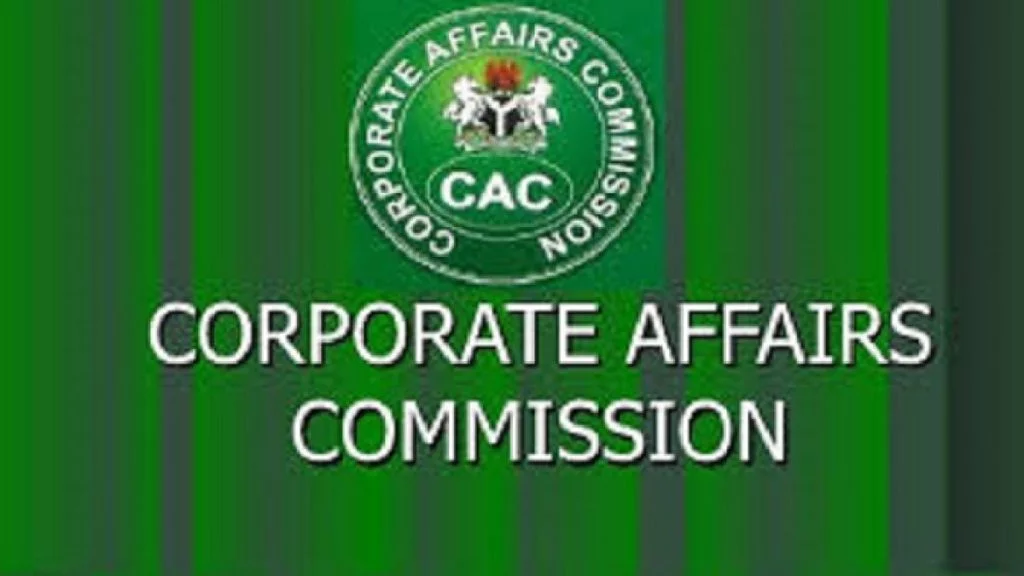
The Corporate Affairs Commission (CAC) has said it would cancel the certificates of incorporation of Bureaux De Change(BCDs) whose licences have been revoked by the Central Bank of Nigeria( CBN).
The Nation reported in February the CBN revoked the licences of 4,173 Bureau De Change operators over their failure to meet regulatory guidelines.
In a statement by its acting Director, Corporate Communications, Sidi Hakama, CBN explained that the regulatory provisions flouted include nonpayment of all necessary fees within the stipulated period.
CBN said: “The affected institutions failed to observe at least one of the following regulatory provisions: Payment of all necessary fees, including licence renewal, within the stipulated period in line with the guidelines.
READ ALSO: FEC Steps Down Projects From Past Govts For Review
“Rendition of returns in line with the guidelines; compliance with guidelines, directives, and circulars of the CBN, particularly Anti-Money Laundering, Countering the Financing of Terrorism and Counter-Proliferation Financing regulations.”
However, in line with the above directive by the CBN, the CAC in a notice on its website on Wednesday, said the certificates would be cancelled within three months if the affected companies do not change the names and objects of such companies.
READ ALSO: Actress Joke Silva Celebrates Legendary Husband At 82
“The general public is hereby informed that following the revocation of the operational licenses of 4,173 Bureau De Change companies by the Central Bank of Nigeria vide a Federal Republic of Nigeria Official Gazette (Vol. 111) No. 37 of February 27, 2024 for noncompliance with Regulatory Standards, the Corporate Affairs Commission in the exercise of its powers under section 8(1)(e) of the Companies and Allied Matters Act, 2020 advises these companies to within three months from the date of this publication, change the names and objects of such companies.
“Failure to change the names and objects within the stipulated time frame shall result in cancellation of certificate of incorporation and dissolution. It is to be noted that it is unlawful for a company whose certificate has been deemed dissolved to carry on business,” the CAC notice reads.
Business
FG Suspends Taxes On Maize, Wheat, Rice, Others
Published
3 weeks agoon
July 8, 2024By
Editor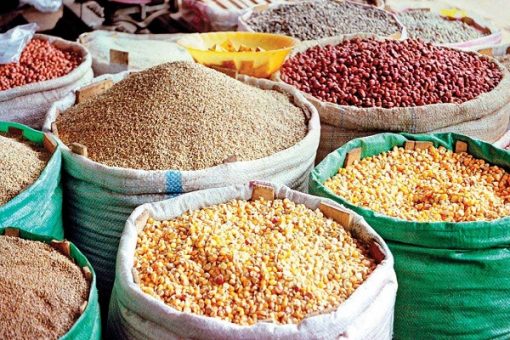
The Federal Government has suspended duties, tariffs and taxes on some essential food items imported through land and sea borders.
Minister of Agriculture and Food Security, Abubakar Kyari, announced this at the National Press Centre, Abuja.
Kyari also said the Federal Government has also inaugurated the Renewed Hope National Livestock Transformation Implementation Committee to develop and implement policies that prioritize livestock development and align with the National Livestock Transformation Plan.
He stated that the listed food items, which include maize, wheat, husked brown rice and cowpeas, will enjoy a 150-day Duty-Free Import Window.
READ ALSO: 10 Safest Countries In The World In 2024
He added that the move is part of the Presidential Accelerated Stabilization and Advancement Plan, which is aimed at achieving food security and economic stability in the country.
According to him: “The Federal Government has announced a 150-day Duty-Free Import Window for Food Commodities, suspension of duties, tariffs and taxes for the importation of certain food commodities (through land and sea borders). These commodities include maize, husked brown rice, wheat and cowpeas.
READ ALSO: Court Orders Buhari’s Minister To Account For N729bn Payment To Poor Nigerians
“Under this arrangement, imported food commodities will be subjected to a Recommended Retail Price (RRP).
“I am glad to reiterate that the Government’s position exemplifies standards that would not compromise the safety of the various food items for consumption.
“In addition to the importation by the private sector, the Federal Government will import 250,000MT of wheat and 250,000MT of maize. The imported food commodities in their semi-processed state will target supplies to the small-scale processors and millers across the country.”
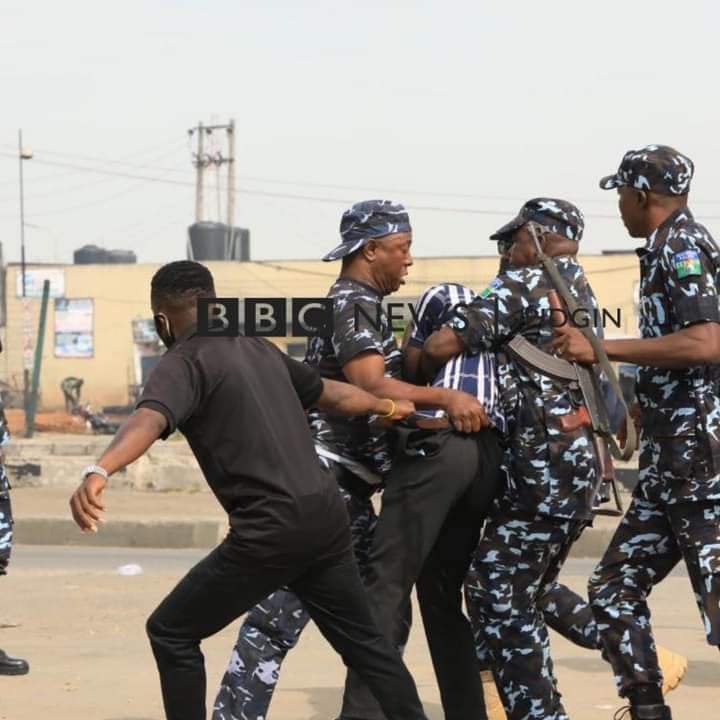
FULL LIST: Those Supporting, Against Aug 1 Nationwide Protest

Religious Leaders Harp On Tolerance At Grassroots Sensitisation Programme In Benin

Act Fast On Oil Spill Rocking Forcados Area, CSOs Task FG, Delta Govt
Trending

 News2 days ago
News2 days agoNationwide Protest: The Killer Is Afraid Of Death [OPINION]

 Metro5 days ago
Metro5 days agoConfusion As Female Passenger Dies In Lagos Keke Marwa

 News4 days ago
News4 days agoJUST IN: Tinubu Sends ₦70,000 Minimum Wage Bill To NASS

 Entertainment4 days ago
Entertainment4 days agoActress Denies Alleged Affair with Senate President Akpabio

 Headline3 days ago
Headline3 days agoBREAKING: SGF, NSA, Ministers In Emergency Meeting Over Planned Nationwide Protest

 News2 days ago
News2 days agoBREAKING: INEC Can Handle Local Government Elections, Says Chairman Yakubu

 News3 days ago
News3 days agoPAP: Again, Otuaro Meets Stakeholders, Re-emphasises Importance Of Collaboration

 Politics2 days ago
Politics2 days agoPlace Obaseki On Security Watch List, Edo APC Urges FG, As State Govt Kicks

 Headline4 days ago
Headline4 days agoElon Musk Opens Up About His Transgender Child

 News4 days ago
News4 days agoJUST IN: Senate Passes Minimum Wage Bill From N30,000 To N70,000
